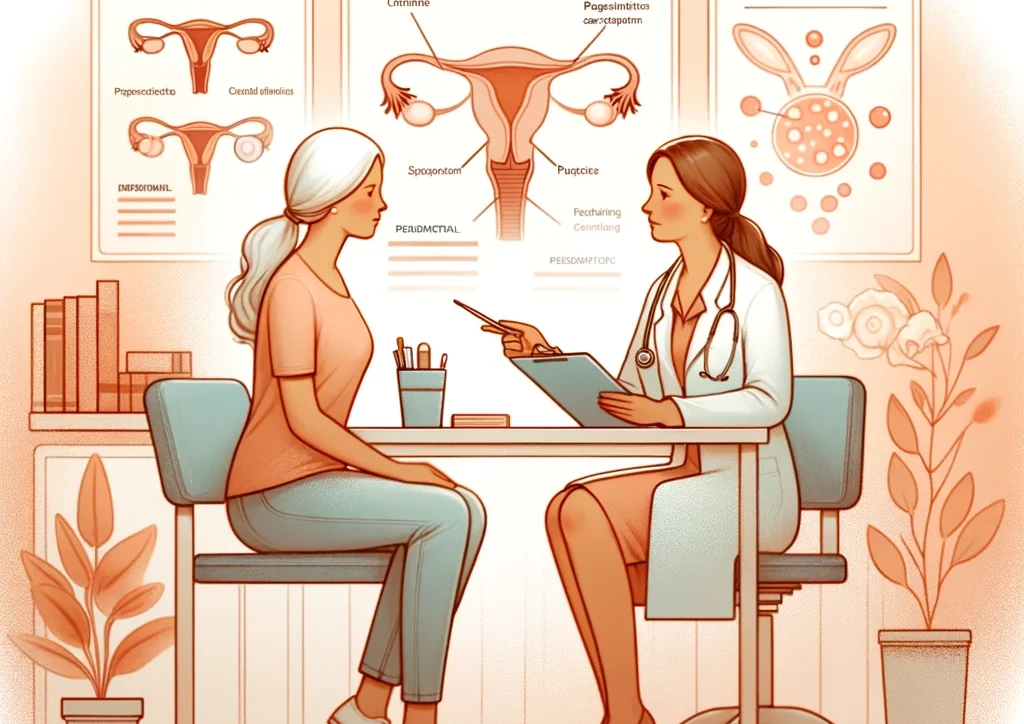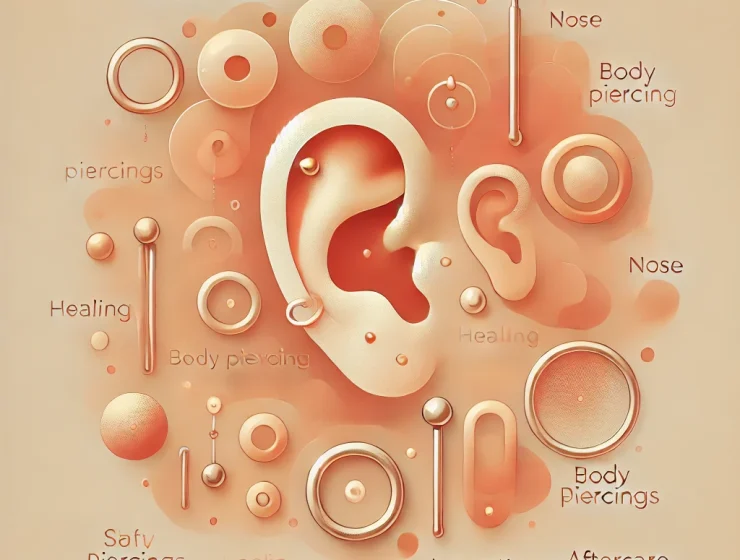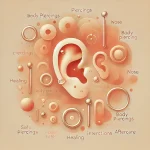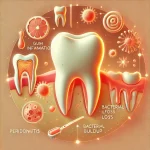Ben je ooit ongerust geweest over een lichte bloeding buiten je menstruatie om? Geen zorgen, je bent niet de enige. Bij Verloskundigen PuurBegin krijgen we vaak vragen over spotten en wat dit fenomeen precies inhoudt. In dit artikel leggen we uit wat spotten is, waarom het kan optreden en of het schadelijk is voor je gezondheid. Benieuwd of je je zorgen moet maken of dat het juist heel normaal is? Lees dan snel verder!
Wat is spotting?
Spotting, ook wel bekend als lichte bloeding buiten de menstruatie om, is een fenomeen dat veel vrouwen op een bepaald moment ervaren. Het kan verschillende oorzaken hebben, zoals hormonale veranderingen, stress of een reactie op anticonceptie. Spotting wordt vaak gezien als een onschuldige gebeurtenis, maar het kan ook een teken zijn van een onderliggend probleem. Daarom is het altijd verstandig om het in de gaten te houden en bij twijfel contact op te nemen met je verloskundige.
Hoewel spotting meestal kortdurend is en vanzelf overgaat, zijn er enkele situaties waarin je extra alert moet zijn. Denk hierbij aan:
-
- Lange periodes van spotting
-
- Ernstige pijn of krampen
-
- Ongewone kleur of geur
-
- Zwangerschapsposities
| Oorzaak | Mogelijke Oplossing |
|---|---|
| Hormonale schommelingen | Overleg met je arts |
| Stress | Ontspanningsactiviteiten |
| Anticonceptie | Controle bij je verloskundige |
Oorzaken van spotting
Spotting kan verschillende oorzaken hebben die zowel onschuldig als zorgwekkend kunnen zijn. Laten we eerst de onschuldige factoren bekijken:
-
- Implantatiebloeding: Sommige vrouwen ervaren een lichte bloeding wanneer een bevruchte eicel zich in de baarmoederwand nestelt.
-
- Stress: Hoge stressniveaus kunnen je hormonale balans verstoren, wat spotting kan veroorzaken.
Aan de andere kant zijn er ook oorzaken waar je beter extra aandacht aan besteedt:
-
- Hormonale anticonceptie: Spotting komt vaak voor bij het gebruik van de pil, spiraaltje of de prikpil.
-
- Zwangerschapscomplicaties: Spotting tijdens de zwangerschap kan wijzen op een miskraam of buitenbaarmoederlijke zwangerschap.
Als je merkt dat je regelmatig last hebt van spotting, aarzel dan niet om contact met ons op te nemen. We staan altijd klaar om je vragen te beantwoorden en je de nodige ondersteuning te bieden.
Hormoonschommelingen
zijn één van de meest voorkomende oorzaken van spotting. Schommelende hormoonspiegels kunnen verschillende veranderingen in je lichaam veroorzaken, waaronder lichte bloedingen buiten je normale menstruatieperiode. Soms kan dit eenvoudigweg een gevolg zijn van fluctuaties in oestrogeen en progesteron, die je cyclus reguleren. Verhoogde stress of veranderingen in je anticonceptie kunnen deze schommelingen veroorzaken, waardoor spotting ontstaat. Zoals je ziet, hoeft het dus niet altijd een signaal van bezorgdheid te zijn.
Anderzijds kunnen ook medische omstandigheden zoals PCOS (Polycysteus Ovarium Syndroom) of een trauma aan de baarmoeder bijdragen aan deze hormonale onbalans. Het is belangrijk om alert te blijven en niet meteen het ergste te vrezen; de meeste vrouwen ervaren in hun leven wel eens spotting zonder ernstige gevolgen. Mocht je echter regelmatig spotting ervaren, dan kan dat een goede reden zijn om je verloskundige of huisarts te raadplegen. Zij kunnen je helpen eventuele onderliggende oorzaken te identificeren en samen met jou een behandelplan op te stellen.
-
- Schommelende hormoonspiegels
-
- Verhoogde stress
-
- Veranderingen in anticonceptie
-
- Medische condities zoals PCOS
-
- Trauma aan de baarmoeder
| Factor | Invloed |
|---|---|
| Oestrogeen | Regelt de cyclus |
| Progesteron | Balans |
| Stress | Verhoogde schommelingen |
| Anticonceptie | Kan fluctuaties veroorzaken |
Anticonceptie
Spotting oftewel lichte bloedingen tussen menstruaties door, kan verschillende oorzaken hebben. Als je gebruikt, zoals de pil, kan het soms gebeuren dat je af en toe spotting hebt. Dit kan te maken hebben met hormonale schommelingen in je lichaam. Gelukkig is dit meestal niet schadelijk.Er zijn verschillende soorten die met spotting geassocieerd kunnen worden:
- De pil: Soms veroorzaakt door vergeten pillen of veranderingen in dosering.
- Spiraaltje: Vooral in de eerste paar maanden na plaatsing.
- Implantaten: Hormonale aanpassingen kunnen spotting veroorzaken.
Hoewel spotting vaak onschuldig is, kan het soms wel vervelend zijn. Als je merkt dat je regelmatig last hebt van spotting, kun je overwegen om contact op te nemen met je verloskundige. Zij kunnen je adviseren over eventuele oplossingen of alternatieve vormen van . Houd ook een dagboek bij van wanneer de spotting optreedt en eventuele andere symptomen die je ervaart. Op deze manier krijg je een beter beeld van de situatie en kan je verloskundige gerichter advies geven.
Gebruik onderstaande tabel om te begrijpen welke stappen je kunt nemen als spotting vaak voorkomt:
| Bijwerking | Stappen |
|---|---|
| Regelmatige spotting | Pillen nauwkeuriger innemen, tijdstip bijhouden |
| Spotting bij spiraal | Afwachten, zodat je lichaam kan wennen |
| Hormoonimplantaten | Overleg met verloskundige voor alternatieven |
Medicijngebruik
- Anticoagulantia (bloedverdunners)
- Antidepressiva
- Antibiotica
Het is ook cruciaal om te weten welke medicijnen veilig zijn. Bespreek dit altijd met je verloskundige of arts voordat je iets inneemt. Ze kunnen je adviseren over alternatieven of veilige doseringen, waardoor je minder kans hebt op complicaties zoals spotting. Hier is een overzicht van medicijnen en hun veiligheidsstatus tijdens de zwangerschap:
| Medicijn | Veilig | Onveilig |
|---|---|---|
| Paracetamol | X | |
| Ibuprofen | X | |
| Foliumzuur tot 10 weken | X |
Een soa
-
- Ongebruikelijke afscheiding
-
- Brandende pijn bij het plassen
-
- Jeuk of irritatie rondom de geslachtsdelen
Bij twijfel is het verstandig om contact op te nemen met je huisarts of een specialist zoals een verloskundige. Niet iedere spotting is gevaarlijk, maar het kan wel wijzen op onderliggende problemen die behandeld moeten worden. Bovendien is het belangrijk om je goed te informeren en preventieve maatregelen te nemen, zoals het gebruik van condooms, om verspreiding van soa’s te voorkomen.
| Symptoom | Beschrijving |
|---|---|
| Brandende pijn | Bij het plassen |
| Ongewone afscheiding | Vaak dikker en anders van kleur |
| Jeuk | Irritatie rondom de genitaliën |
Ovulatie
Tijdens je menstruatiecyclus kan spotting optreden rond de tijd van de . Dit is een natuurlijk proces waarbij een eicel uit je eierstok vrijkomt, meestal rond de 14e dag van je cyclus. Hoewel spotting tijdens deze periode meestal niet schadelijk is, kan het verwarrend en soms verontrustend zijn.Spotting tijdens de kan worden veroorzaakt door:
-
- Hormoonveranderingen
-
- Lichte bloeding door de eierstok
-
- Hogere oestrogeenspiegels
Het goede nieuws is dat dit type spotting vaak tijdelijk is en doorgaans onschuldig. Let echter goed op je lichaam. Als de spotting aanhoudt of gepaard gaat met andere symptomen, raadpleeg dan je zorgverlener. Bij Verloskundigen PuurBegin zijn we er om je te helpen en je gemoedsrust te bieden.
Innestelingsbloeding
-
- Lichtroze of bruinachtige kleur
-
- Weinig bloedverlies
-
- Geen stolsels
Als de bloeding overvloedig is of gepaard gaat met hevige buikpijn, is het verstandig om contact op te nemen met je verloskundige. Normaal gesproken is echter onschadelijk en vanzelfsprekend een natuurlijk onderdeel van het vroege zwangerschapsproces.
Een ontsteking
-
- Infecties (zoals bacteriën of virussen)
-
- Fysieke verwondingen (zoals snijwonden of kneuzingen)
-
- Allergieën (zoals pollen of voedsel)
Onze ervaring bij Verloskundigen PuurBegin heeft ons geleerd dat ontstekingen vaak niet direct schadelijk zijn, maar ze kunnen soms complicaties veroorzaken. Bijvoorbeeld, een onbehandelde infectie kan zich verspreiden en ernstiger worden. Gelukkig zijn er verschillende manieren om ontstekingen te behandelen of te voorkomen:
-
- Gebruik van antibiotica (bij bacteriële infecties)
-
- Ontstekingsremmende medicijnen
-
- Gezonde voeding en levensstijl
Endometriose
-
- Medicatie: Hormoonbehandelingen of pijnstillers kunnen symptomen verlichten.
-
- Chirurgie: Het verwijderen van weefsel kan verlichting bieden.
-
- Levensstijl veranderingen: Stressmanagement en voeding kunnen impact hebben.
Communiceer altijd met je verloskundige of huisarts over je symptomen en mogelijke behandelingen. Zij zullen je helpen om de beste opties te vinden. Let op: Niet elke optie werkt voor iedereen, het kan dus even duren voordat je de juiste behandeling vindt.
Stress
-
- Verandering in werkschema: Onverwachte veranderingen kunnen je cyclus verstoren.
-
- Emotionele gebeurtenissen: Dingen zoals een verhuizing of een verlies kunnen voor een tijdelijke cyclusverandering zorgen.
-
- Gebrek aan slaap: Ook een verstoord slaapritme kan invloed hebben op je menstruatie.
Terwijl soms onvermijdelijk lijkt, zijn er methoden om het beter te beheren en de impact op je gezondheid te minimaliseren. Probeer bijvoorbeeld:
-
- Meditatie en ademhalingsoefeningen: Deze helpen je cortisolniveau te verlagen.
-
- Regelmatige lichaamsbeweging: Fysieke activiteit kan een effectieve manier zijn om te verminderen.
-
- Gesprekken met een professional of geliefde: Praten helpt vaak om dingen helder te krijgen en je minder gespannen te voelen.
PCOS
-
- Voordelen van een gezond dieet: Reguleert insuline en ondersteunt hormonale balans.
-
- Regelmatige beweging: Vermindert stress en helpt bij gewichtsbeheersing.
-
- Medicijnen: Bijvoorbeeld anticonceptiepillen, kunnen helpen bij het reguleren van de menstruatiecyclus.
Is spotting schadelijk? Over het algemeen is spotting bij niet direct schadelijk, maar moet je het toch in de gaten houden. Het belangrijkste is om te luisteren naar je lichaam en veranderingen te bespreken met je verloskundige of huisarts. Spotting kan soms wijzen op andere gezondheidsproblemen die verdere aandacht vereisen, zoals baarmoederpoliepen of een schildklieraandoening. Bij twijfel is het altijd beter om advies in te winnen van een professional. Zo weet je zeker dat je de juiste stappen onderneemt voor jouw gezondheid en gemoedsrust.
Een traagwerkende schildklier
-
- Kouwelijkheid
-
- Spierzwakte
-
- Obstipatie
Wanneer deze symptomen zich voordoen, is het van cruciaal belang om een arts te raadplegen voor een accurate diagnose. Hoewel de diagnose eenvoudig is, vaak via een simpele bloedtest, speelt een tijdige ingreep een grote rol in het verzorgen van je algehele welzijn. Gelukkig zijn er effectieve behandelingen beschikbaar, zoals hormonale medicatie, die je schildklierfunctie kunnen reguleren en je symptomen sterk kunnen verminderen.
| Schildklier | Symptomen |
|---|---|
| Normaal | Energiek, stabiel gewicht |
| Traag | Vermoeid, gewichtstoename |
Afwijkingen aan de baarmoedermond of -holte
| Oorzaak | Symptomen |
|---|---|
| Poliepen | Onregelmatige spotting, lichte pijn |
| Fibromen | Zware menstruatie, drukgevoel |
| Endometriose | Hevige pijn, onregelmatige cyclus |
| Chlamydia | Pijn bij het plassen, spotting |
Wat kan je doen bij tussentijds bloedverlies?
Bij tussentijds bloedverlies of spotting, zijn er verschillende stappen die je kunt ondernemen om de oorzaak te achterhalen en jezelf gerust te stellen. Je eerste stap is het bijhouden van een menstruatiekalender waarin je noteert wanneer en hoeveel bloedverlies je hebt. Dit geeft je verloskundige waardevolle informatie om een mogelijke oorzaak te bepalen. Verder kan het nuttig zijn om te letten op andere symptomen zoals pijn, misselijkheid of ongewone afscheiding. Houd deze symptomen bij zodat je een volledig beeld kunt geven tijdens je afspraak.
-
- Controleer je anticonceptie: Spotting kan optreden door veranderingen in hormonale anticonceptie, zoals het starten of stoppen met de pil.
-
- Stress verminderen: Hoge stressniveaus kunnen invloed hebben op je menstruatiecyclus en onregelmatige bloedingen veroorzaken.
-
- Gezonde levensstijl: Eet gezond en zorg voor voldoende beweging. Dit kan helpen je hormonale balans te behouden.
Als je merkt dat het bloedverlies aanhoudt of verergert, is het verstandig om een afspraak te maken met je verloskundige of huisarts. Deze professionals kunnen tests uitvoeren en je de nodige begeleiding bieden. Een grondige controle bestaat meestal uit een lichamelijk onderzoek en eventueel een echo. Hier is een eenvoudige tabel met mogelijke oorzaken en hun snelle oplossingen:
| Oorzaak | Oplossing |
|---|---|
| Hormonale schommelingen | Medicatie of hormoontherapie |
| Stress | Ontspanningstechnieken |
| Anticonceptie | Overleg met je arts |
Bij Verloskundigen PuurBegin staan we altijd klaar om je bij te staan en te adviseren. Vertrouw op je lichaam en aarzel niet om hulp te zoeken wanneer je dat nodig hebt.
Spotting bij pilgebruik
- Zorg ervoor dat je de pil elke dag op hetzelfde tijdstip inneemt.
- Vermijd het overslaan van doses.
- Houd een gezond dieet en zorg voor voldoende rust.
Door deze eenvoudige stappen te volgen, kun je vaak de kans op spotting verminderen. Onthoud, je bent niet alleen hierin; veel vrouwen hebben hier in meer of mindere mate mee te maken en het is vaak tijdelijk.
| Oorzaak | Oplossing |
|---|---|
| Overslaan van pillen | Herinneringen instellen |
| Hormonale schommelingen | Consisteren met de pil-innametijd |
| Stress | Ontspanningstechnieken beoefenen |
Wanneer naar de Verloskundige bellen?
Het is heel begrijpelijk dat je je zorgen kunt maken als je spotting opmerkt tijdens je zwangerschap. Maar wanneer moet je precies contact opnemen? Het is belangrijk om altijd naar je lichaam te luisteren en geen enkel teken te negeren. Hier zijn enkele situaties waarin je direct de verloskundige moet bellen:
-
- Lichte bloeding: Hoewel spotting meestal ongevaarlijk is, kan het in sommige gevallen een teken zijn van een complicatie. Bel ons meteen als je bloedverlies opmerkt, zodat we je kunnen geruststellen of verdere onderzoeken kunnen doen.
-
- Pijn: Spotting gepaard met krampen of pijn kan soms wijzen op een vroegtijdige bevalling of een andere serieuze aandoening. Aarzel niet om ons te bellen als je pijn ervaart samen met bloedverlies.
-
- Koorts: Heb jij spotting en een verhoogde lichaamstemperatuur? Dit kan een infectie aangeven die zowel jouw gezondheid als die van jouw baby kan beïnvloeden. Snel handelen is essentieel.
Daarnaast zijn er andere momenten waarop het verstandig is om even contact op te nemen met ons. Bijvoorbeeld wanneer je spotting ervaart na seksuele activiteit of een inwendig onderzoek. Dit komt vaak voor en is meestal ongevaarlijk, maar we begrijpen dat je je zorgen kunt maken. Twijfel je of heb je vragen? Neem liever een keer te veel contact met ons op dan te weinig.
| Symptoom | Actie |
|---|---|
| Bloedverlies | Direct bellen |
| Pijn/krampen | Direct bellen |
| Koorts | Direct bellen |
Spotting tijdens je zwangerschap
Bij Verloskundigen PuurBegin merken we dat veel zwangere vrouwen zich zorgen maken als ze spotting opmerken. Spotting is licht bloedverlies dat vaak roder of bruin kan zijn. Hoewel spotting soms onschuldig kan zijn, is het toch belangrijk om goed op te letten. Er zijn namelijk verschillende oorzaken die spotting kunnen veroorzaken:
-
- Implantatiebloeding: dit gebeurt vaak in de vroege stadia van de zwangerschap wanneer de bevruchte eicel zich in de baarmoederwand nestelt.
-
- Hormoonschommelingen: vooral in het eerste trimester kunnen veranderingen in hormonen leiden tot licht bloedverlies.
-
- Geslachtsgemeenschap: de baarmoederhals is tijdens de zwangerschap extra doorbloed en dit kan na seksueel contact licht bloedverlies veroorzaken.
Spotting kan echter ook een teken zijn van iets ernstigers, zoals een miskraam of een buitenbaarmoederlijke zwangerschap. Pas daarom altijd goed op en neem contact op met je verloskundige bij twijfel! We staan altijd klaar om je te ondersteunen en gerust te stellen. Hieronder een beknopt overzicht van wat je moet doen bij spotting:
| Stap | Actie |
|---|---|
| 1 | Rustig blijven |
| 2 | Bloedverlies observeren (kleur, hoeveelheid) |
| 3 | Neem contact op met Verloskundigen PuurBegin |
We begrijpen dat zwangerschap een spannende, maar soms ook zenuwslopende tijd kan zijn. Onthoud dat niet alle spotting schadelijk is, maar het is altijd beter om het zekere voor het onzekere te nemen.
Conclusie
En daar heb je het—alles wat je moet weten over spotting! We hopen dat we je wat meer duidelijkheid hebben kunnen geven over wat spotting precies is en of het schadelijk is. Onthoud dat kleine bloedingen tijdens de zwangerschap vaak voorkomen en meestal ongevaarlijk zijn, maar dat het altijd goed is om contact op te nemen met je verloskundige als je twijfels hebt.
Bij Verloskundigen PuurBegin staan we altijd voor je klaar. Heb je nog vragen of zit je ergens mee? Aarzel dan niet om ons te bellen of een afspraak te maken. We begeleiden je graag door je zwangerschap en zorgen ervoor dat je je gesteund en geïnformeerd voelt.
Bedankt voor het lezen en vergeet niet: geen vraag is te gek. We zijn er voor je, op ieder moment van je prachtige reis naar het ouderschap.
Blijf op de hoogte!
Volg ons op social media voor het laatste nieuws en een kijkje achter de schermen bij Verloskundigen PuurBegin in Kampen.
Ontdek de dagelijkse avonturen van onze verloskundigen, waardevolle tips voor aanstaande ouders en inspirerende verhalen uit de praktijk.
Klik op de onderstaande knoppen en blijf verbonden met ons hartverwarmende team!
 |
 |
Hartelijke groet,
Verloskundigen PuurBegin
Adres: Orkestlaan 148, 8265RC Kampen
Telefoon: 085 40 19 095






